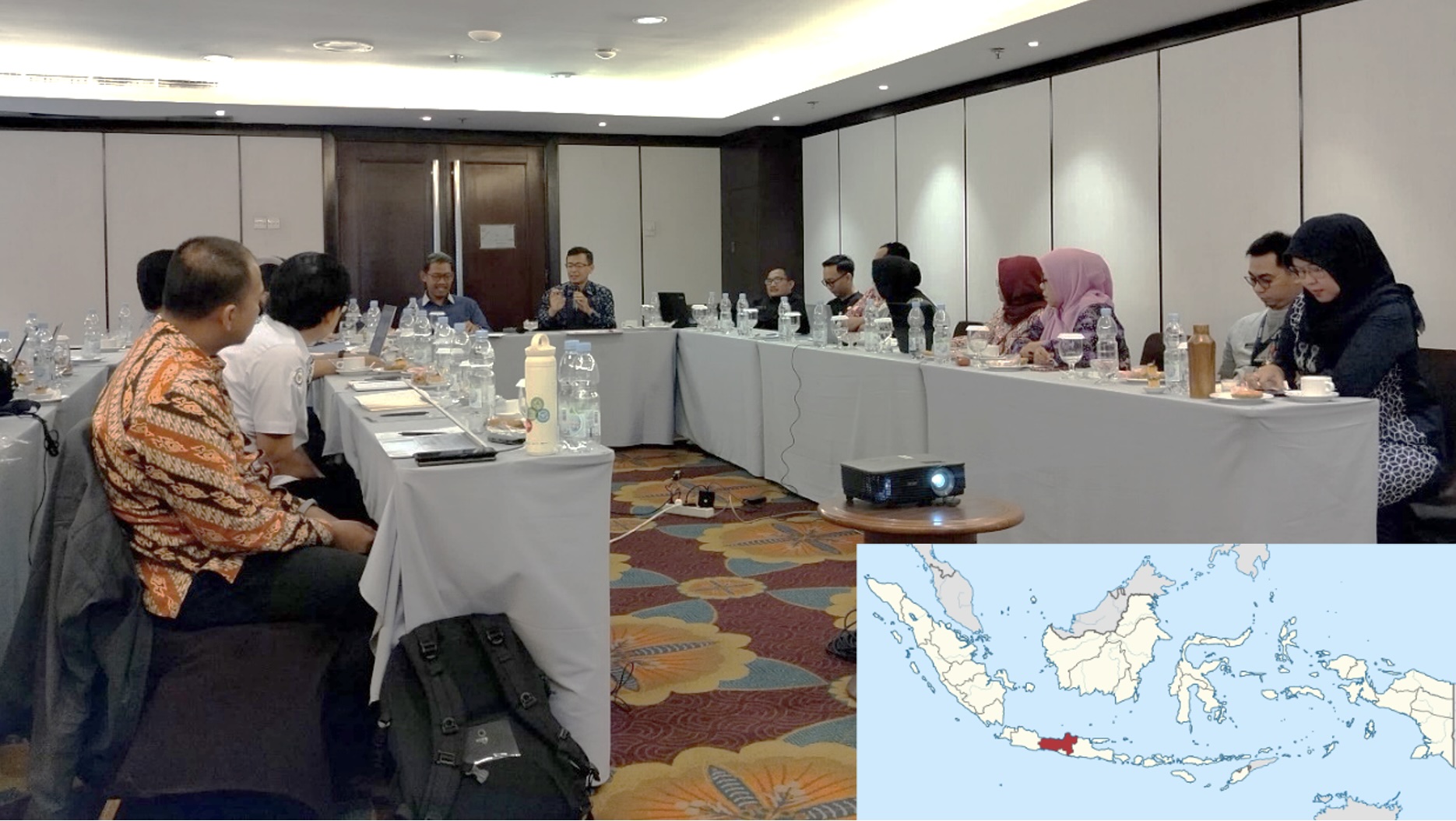
Bayuni Shantiko[1]and Sopian Hidayat[2]
Indonesia’s work on ecological fiscal transfer (EFT) has advanced with the approval of Governor Regulation No. 61/2023, providing guidelines on financial assistance to municipal governments. This regulation was approved by the Central Java governor in December 2023 after a series of consultations organized by BIOFIN and Ministry of National Development Planning (BAPPENAS)[3] with the provincial, district, and municipal governments. EFT allocates financial resources to relevant sub-national government jurisdictions for performing ecological functions such as conservation areas for which benefits are shared beyond their jurisdiction.
Piloting EFT in Central Java is befitting and offers a lot of learning opportunities due to the rich biodiversity in the province. Java Island is the island with the highest population density in Indonesia with 1,180 people per square kilometer (BPS, 2021). The land is also home to the last remaining Javan Rhino and particularly in Central Java is the habitat for the globally threatened Javan pied starling (CR) and most endangered raptor Javan hawk-eagle (Nisaetus bartelsi). The latest population estimate for the Javan hawk-eagle (Nisaetus bartelsi) is 511 breeding pairs (Mongabay, 2023) and they are key bioindicator species as they offer clues about the health of the ecosystems in which they live.
Central Java also faces numerous challenges that threaten its biodiversity richness, including air and river pollution. Furthermore, twelve districts/municipalities are at high risk of natural disasters and deforestation resulting from land conversion and forest fires.
Central Java is one of the provinces with a high fiscal capacity. This is reflected in its government budget where locally generated revenue is much higher than revenue from central government transfers. This means the province has fiscal independence which enables it to restructure the budget and transfer to its districts in the form of financial assistance. However, from a budgeting perspective, the district/city government in Central Java only allocated 1.2% of the total provincial government budget in 2020 for activities related to the environment. These expenditures include activities related to environmental protection and management, including (i) supervising environmental risks of business activities, environmental permits, environmental protection, and management permits, issued by the Central Java Provincial government, (ii) actions on critical lands rehabilitation, watersheds restoration, (iii) activities on forest conservation and rehabilitation (reforestation), and (iv) conservation on wetland and mangrove ecosystem.
Various policies on devolution and decentralization support the implementation of EFT in Indonesia. Specific laws, including the Fiscal Decentralization Law (Law 25/1999), the Forestry Law (Law 41/1999), and others (Law 6/2014 on Village, Law 32/2014 on Marine, and Law 32/2009 on Environmental Protection and Management) provide further guidance on devolved functions. The management of natural resources, both terrestrial and marine, depending on the type of resource is jointly shared by national, provincial, and district governments. For example, Law 23/2014 significantly shifted the management of forest and marine resources by transferring authority from the district to the provincial level. However, protected areas such as national parks and other conservation areas remain under the management of the central government, leaving limited authority over the management of biodiversity parks, arboretums, grand forest parks, and green open spaces to district governments. Furthermore, sub-national governments are financially dependent on the central government. Given the remaining environmental authority within district governments and the high environmental risks, natural disasters, and loss of biodiversity at the district level, there is a need for incentives for sub-provincial governments.
Governor Regulation No. 61/2023 allocates financial assistance to BANKEU[4] for conservation and environmental preservation, aiming to enhance environmental management performance and incentivize sub-provincial governments to prioritize environmental conservation efforts. The formula development was based on five pillars: pollution, land cover and biodiversity, water resources protection, natural disasters, and environmental regulations and institutions. These performance criteria are essential and relevant for all districts and municipalities. Some eligible projects relevant to this BANKEU include the development of biodiversity parks, green open spaces, botanical gardens, and forest parks.
EFT signifies a crucial step towards addressing the pressing environmental challenges faced by the province. Through the establishment of the BANKEU scheme, Central Java aims to redirect fiscal resources towards biodiversity conservation and environmental preservation initiatives.
[1] BIOFIN Indonesia National Coordinator
[2] BIOFIN Indonesia Project Economist
[3] BAPPENAS is an abbreviation for Kementerian Perencanaan Pembangunan Nasional/Badan Perencanaan Pembangunan Nasional
[4] BANKEU is the acronym for Bantuan Keuangan which means financial assistance.
Categories
Countries
Archives
- May 2024 (6)
- April 2024 (5)
- March 2024 (3)
- February 2024 (6)
- January 2024 (3)
- December 2023 (1)
- November 2023 (7)
- October 2023 (5)
- September 2023 (2)
- August 2023 (2)